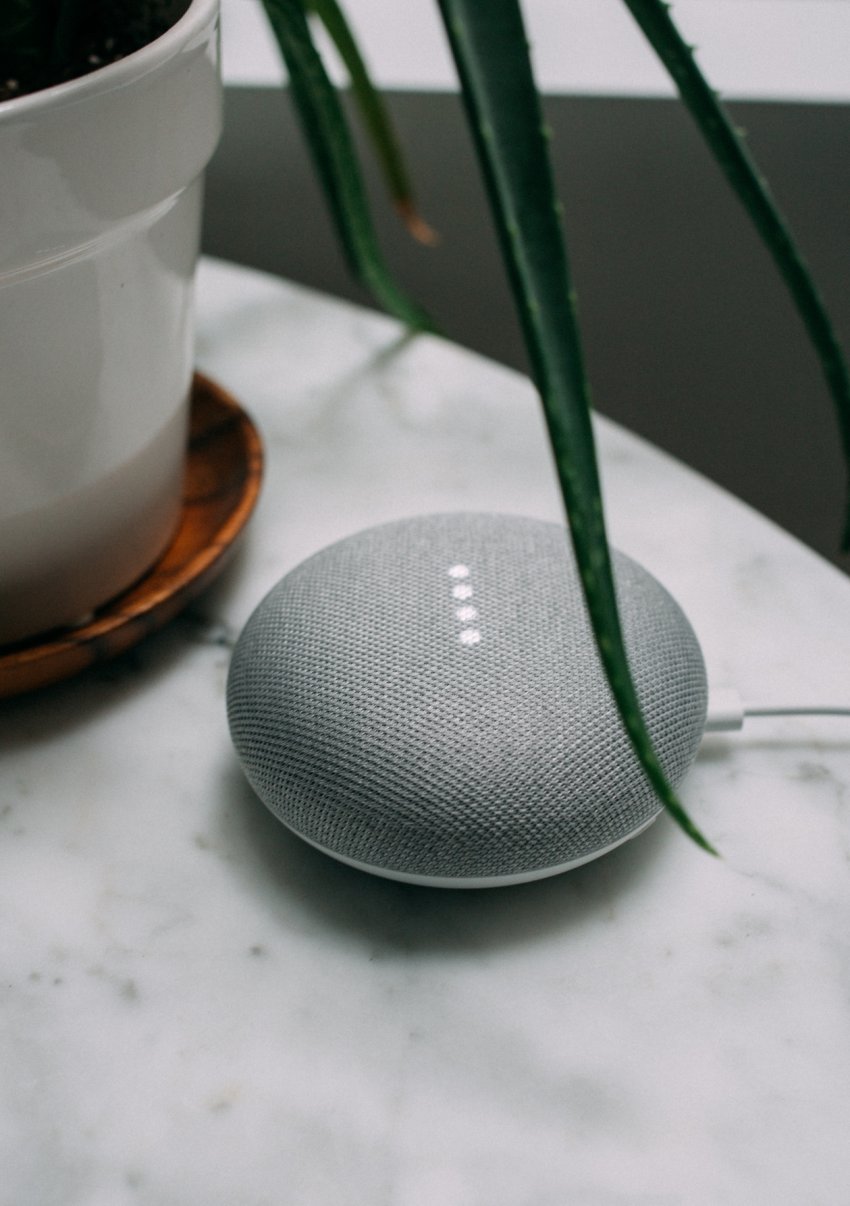When thinking about digital assistants, people often imagine the voice function in your phone that you might accidentally switch on when trying to take a screenshot. It is fun to ask a few requests, ranging from easy commands (“Open Music”) to joke questions (“Siri, do you love me?”). Nobody was taking the technology seriously until the last few years. Now it has emerged as one of the most topical technologies, as smart assistants gravitate from our phones to listening devices in our homes.
In short, a digital or smart assistant is a device with voice-activated software that can carry out a range of tasks for you based on your command. They can be used to ask questions, schedule meetings, switch on and off other devices at home, receive information, answer phone calls and much more.
Private assistant that never sleeps
Smart assistants are voice-activated, which means it is always on and listening in the background to hear a specific trigger word or phrase, such as “Alexa”, “Siri” or “Hey Google”. During the waiting time, the assistant does not record the conversations, only listens to them. When it hears the trigger phrase, it starts recording the next words and provides the necessary service. Here are some examples of how a smart assistant can be used:
- Getting information about places and things around you: Where is the nearest library? When does it close? How can I get there? What public transport goes there? When is the last train?
- Getting general information: How old is Madonna? Where is Poznań located? Why are there twelve stars in the EU flag? What is the author of the song that’s playing?
- Asking the device to carry out specific functions: Send a message to mom. Buy a Netflix subscription. Switch on the “do not disturb” mode.
- If your house is equipped with smart lights and other technology, the assistant can even switch on the lights in a specific room, change the temperature, check the contents of your fridge or activate your robot vacuum cleaner.
After they’ve recorded the phrase, it is sent to a database where the device tries to find an answer. It is surprisingly efficient: a recent ‘digital assistant IQ test’ showed that the best of them are able to fulfill more than 90% of simple requests asked.
They offer a lot of utility and bring efficiency in an already very busy life. Smart assistants help organize our life at home and can be of great help when driving because they offer hands-free systems. At the same time, there is a growing skepticism regarding their privacy.
Always on and listening
The biggest advantage of the smart assistant — the ease of use — is also its main drawback. The assistant is always on. The walls literally have ears, and everything you say or do is listened to. The companies developing smart assistants promise that nothing before the trigger phrase is ever recorded, and only a very small portion of recordings after the trigger phrase are heard by real people. These are mostly the cases when the device has not been able to fulfill the request, and the people are listening to improve the technology.
What about cases when the recording device switches on randomly? The device is not foolproof: it might think it has heard the trigger phrase when it’s actually not uttered. It records the conversation for some seconds after this, and the conversation, while not directed to the device, could still reach the employees working at the company.
We also cannot be sure what the company is doing with this information. Is it sold to third parties? According to user agreements, definitely not. Is it used to improve the device and make it more intuitive of your needs? Definitely, that’s one of the selling points. Is it used to provide targeted ads? Probably.
Does it mean you should never buy a smart assistant? Not necessarily. It depends on your perspective of life: are you willing to trade a bit of your privacy to bring more comfort into your life? This is a question that often requires answer in the age of instant connection, social networks and tons of smart gadgets. You just have to decide where is your place in the privacy debate.
P.S. Know what makes your life easier without threats to your privacy? We have a deal on storage space.
